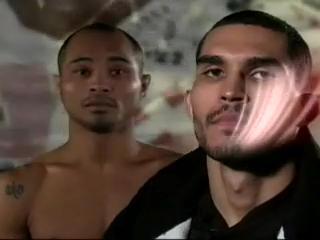
Glory began for women's sports at Carolina, just as Boyd hoped, with UNC's first seven women's varsity programs in 1971-72. "We hope that the co-eds of the future coming in greater numbers will follow in the footsteps of our brother athletes and bring glory to Carolina." "We've worked under disadvantages," Catherine Boyd, a participant in early women's club and intramural teams, wrote for Carolina Magazine in 1922, 50 years before the enactment of Title IX.

The women on those early teams were talented and determined, and many wanted to compete at a higher level. While women started playing organized sports at UNC as early as 1922, it was only as club teams and intramurals before the 1971-72 season. What's unique about us is we're committed to women's athletics in a very aggressive, powerful and positive way." "Back in the old days it was so tough for women to compete at a collegiate level, and now the whole culture is transformed. "Because of Title IX, women's athletics has been transformed," said Tar Heel hall-of-fame women's soccer coach Anson Dorrance, whose teams have won 22 national championships. Those 37 words - "No person in the United States shall, on the basis of sex, be excluded from participation in, be denied the benefits of, or be subjected to discrimination under any education program or activity receiving Federal financial assistance" - especially leveled the playing field for women competing in athletics across the country. The following summer, on June 23rd, 1972, women across the United States were given the opportunity for an equal playing field in higher education with the enactment of Title IX.

Credited as the Mother of Women's Sports at Carolina, Hogan, the first Associate Athletics Director for Women's Sports at UNC, was the woman behind the genesis of the first seven teams to gain varsity status that year: basketball, field hockey, volleyball, fencing, swimming and diving, tennis and gymnastics. Hogan, a UNC instructor at the time, never grew flustered, staying strong and focused for more than 30 years with the hope that women would one day have an equal playing field with the men on campus. Some examples include " Felicia," " Becky," " Chad," and " Kyle.In the mid-1940s, Frances Hogan coached a small club field hockey team that worked out at Kenan Stadium following football and band practices - often facing hecklers from male counterparts on the field. "Karen" is one of many name-related terms that have been used to describe people who exhibit certain traits or behavior. One instance of this occurred in May 2020 when a woman in Central Park in New York City called the cops on a black man who asked her to leash her dog and she told the police that the man was "threatening her life." When the video of this incident went viral online, the woman became widely known as "Central Park Karen." Other slang names like Karen

Sometimes the "Karen" behavior can be more dangerous, especially in regards to racial issues. Some examples of "Karen" behavior include blocking people from an open car space so your friend can park there or screaming at retail workers about a refund policy. The term is often used online accompanying videos capturing the aggressively petty behavior of white women. It became a subreddit and grew in popularity as a meme to make fun of women acting aggressively petty.

The "Karen" term originated from Reddit in 2017 when a user ranted about his ex-wife Karen and the things she was doing that annoyed him. The term is often used to criticize the behavior of self-absorbed white, affluent, and middle-aged women, but may also be applied to anybody being " extra", or acting demanding and overly dramatic. A "Karen" is a woman who acts entitled, expects certain privileges or special treatment, and gets angered easily.


 0 kommentar(er)
0 kommentar(er)
